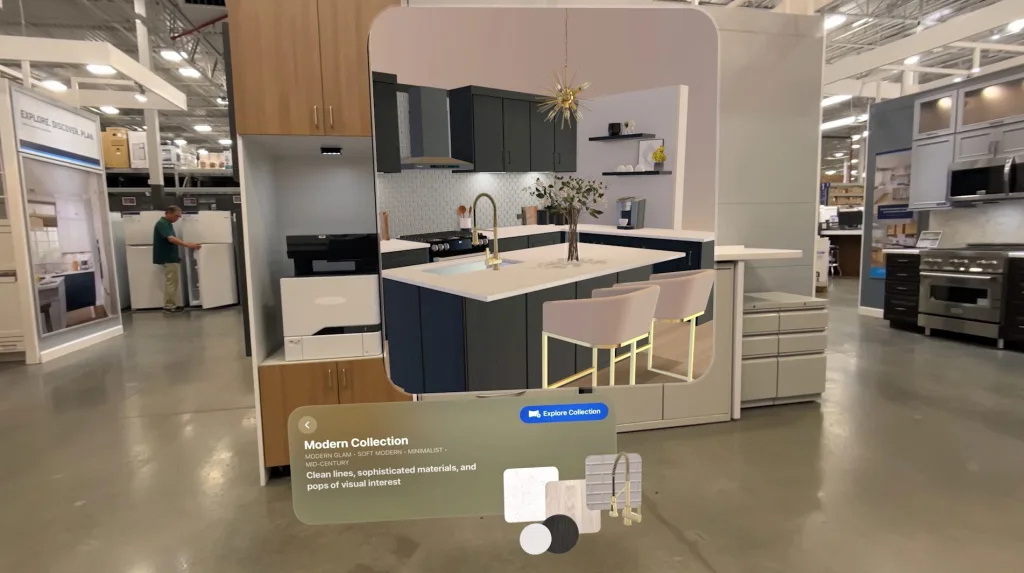Lowe’s wants you to use the Apple Vision Pro to design your kitchen
The home improvement retailer is letting customers in three cities use the devices to plan their next kitchen remodel.
BY Chris Morris
Apple’s Vision Pro might not be a huge hit with consumers so far, but the spatial computing headset has found an unlikely backer in Lowe’s. The home improvement chain has announced plans to begin using the Vision Pro in stores to let customers who are planning a kitchen renovation visualize what the changes will look like. The pilot program will begin later this month in three markets.
“Lowe’s has a history of breaking new ground in our industry, and being the first home improvement retailer to offer an Apple Vision Pro experience in select stores is an exciting step in our omnichannel journey,” said Seemantini Godbole, Lowe’s executive vice president, chief digital and information officer in a statement. “We believe Apple Vision Pro can enhance in-store kitchen design experiences, empowering our customers to visualize their dream kitchens.”

The trial program will run for a limited time. The first stop will be at the Central Charlotte, North Carolina store, from June 8 through June 12. Then, from June 22 through June 25, customers at Lowe’s stores in North Bergen, New Jersey, and Sunnyvale, California, will be able to experience the program.
Customers can book a visualization session online with a store associate though each location will also accept a limited number of walk-in appointments. The in-store appointments are an expansion of the company’s Lowe’s Style Studio experience, which launched in February and was designed for home users of the Vision Pro.
The app lets customers explore a plethora of design combinations (nearly 80 billion, according to the company), seeing how varying materials, fixtures, and appliances will look. Once the customer has arranged a kitchen design they want, they can save the image and then email, text, or airdrop a PDF of the layout to friends, family, and designers to get feedback (and, natch, order those improvements from Lowe’s).
Lowe’s might seem an unusual place for the Vision Pro to be a tool, but interior design is hardly the only industry that’s adopting use of Apple’s headset. A growing number of medical companies are using the Vision Pro to do everything from manage medical records to educate patients on what happens during and after a heart attack.
There’s also substantial optimism about the headset’s use on factory floors as a training tool, letting workers practice on new objects or machines before they interact with the real-world version. And earlier this year, a new airline announced plans to offer select passengers the use of the Vision Pro on flights starting next month.
The Vision Pro itself has been met with mixed reactions from consumers, though most critics say the potential of the device is exciting. Its $3,500 price tag is considerably higher than other mixed-reality headsets and puts the device out of the financial range of many customers.
Apple doesn’t appear to be in a hurry for its mixed-reality headset to be a top seller, however. It has already paired back sales expectations for the first year from 1 million to 400,000. The company hopes to win over developers first, then bring the Vision Pro to a price point that’s more accessible for the general public.
The Vision Pro isn’t the only new tech tool Lowe’s has incorporated into its sales process. The company also recently unveiled Lowe’s Product Expert, an AI-powered chatbot that offers home improvement product recommendations.
ABOUT THE AUTHOR
(29)